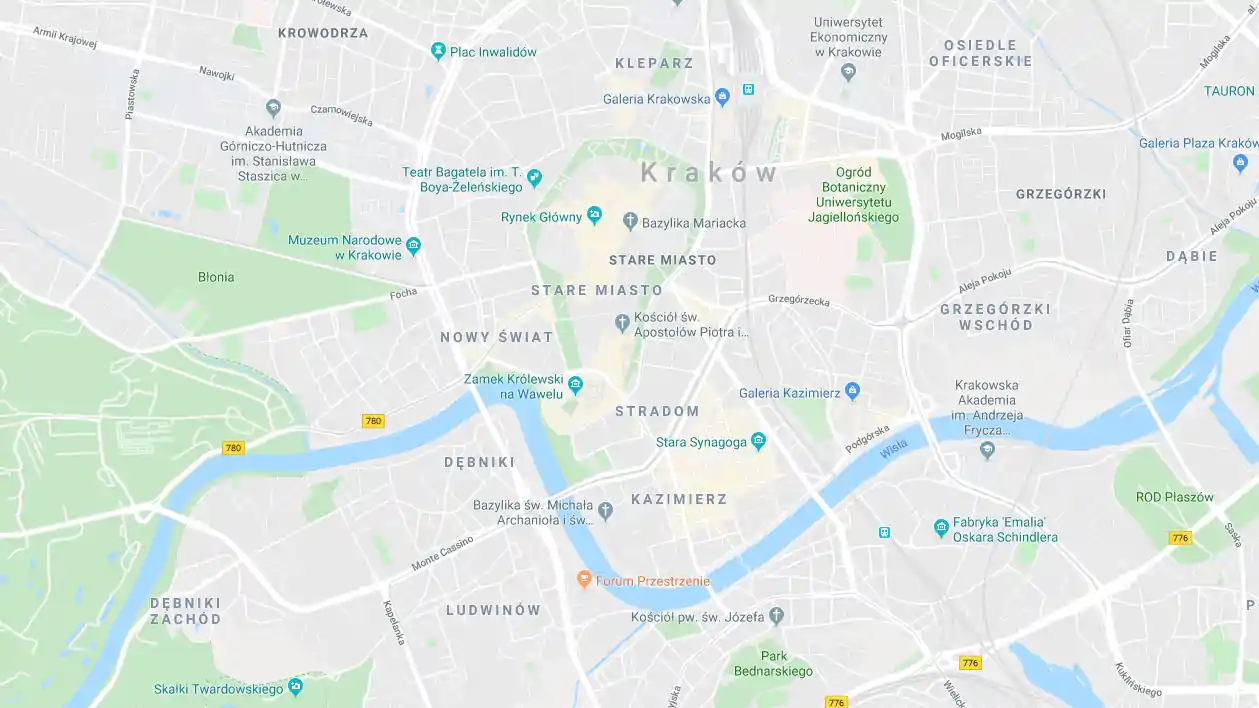Jagiellonian University
Gołębia 24, 31-007 Kraków
Tourist region: Kraków i okolice
The Jagiellonian University has held its current name since 1817, which was given to it to commemorate the role of the House of Jagiellon in its establishment. The turbulent history of Poland left its mark on the university. The mass execution of professors and teachers during World War II, the division into smaller entities and the closure of some chairs and departments all affected the organisation and activities of the University. It was only after 1989 that the University gained the autonomy it deserved. It was not until 1993 that medical studies could be offered once again at Collegium Medicum.
Some of the most prominent graduates of the Jagiellonian University include politicians, important figures in the Polish history and distinguished scholars of worldwide renown. Some of these are Jan Kochanowski, Jan Długosz, Jan III Sobieski, Nicolaus Copernicus, Stanisław Wyspiański, Bronisław Malinowski, Roman Ingarden, Karol Wojtyła and Wisława Szymborska.
Currently, the Jagiellonian University has more than 4,000 employees and teaches over 40,000 students from all over the world, who come study here due to the high level of education offered by the University and the magic of the city of Kraków.
Make sure to visit the buildings and halls of Collegium Maius and Collegium Novum, where you can experience the true majesty of the University and feel the atmosphere experienced by some of the greatest minds in history. Today, the Collegium Maius houses the Jagiellonian University Museum, with priceless artefacts, including scientific instruments, paintings, sculptures, prints, drawings, watercolours, gold items, ceramics, textiles and much more. The Botanical Garden of the Jagiellonian University, founded in 1783 upon the initiative of the National Education Commission and located at Kopernika 27, is an educational and recreational establishment, open to the general public.
